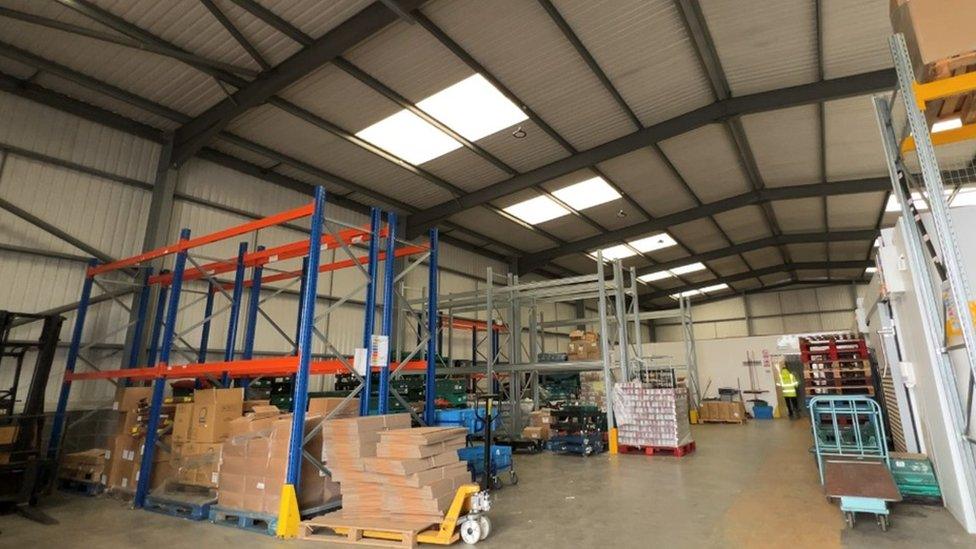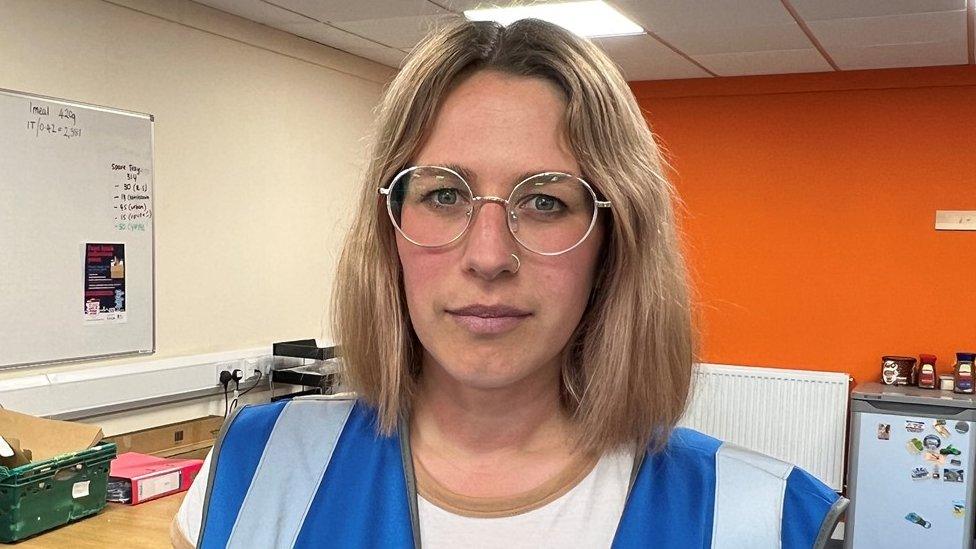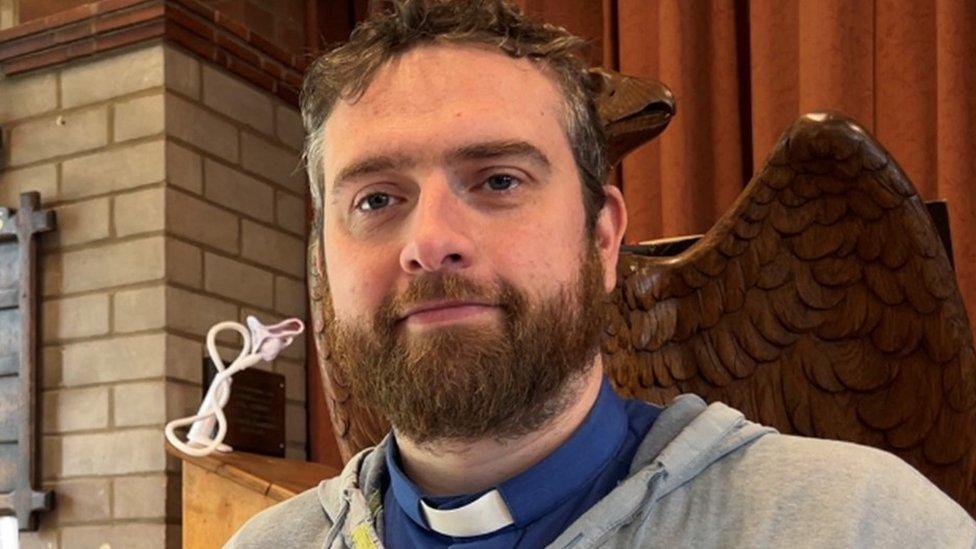Low stock threatens Hull food bank charity's future
- Published

Dwindling supplies mean empty shelves at Fareshare Hull and Humber
Staff at a food bank charity which helps feed thousands of people have said they desperately need more donations amid fears for its future.
Fareshare Hull and Humber collects surplus stock from food producers and supermarkets which it redistributes to some 150 food banks in the region.
But the charity said donations had dropped to half of what were needed and it could no longer meet demand.
Jodie Colgrave, from Fareshare, said: "Every week we are worried."
Ms Colgrave, assistant operations manager at the site in Hull, said a total of 53 tonnes of surplus food were received last month, which was the lowest amount in the past year.

Jodie Colgrave has appealed for businesses to help supply surplus food
She said: "We need about 120 tonnes a month to be comfortable. We just can't meet demand at all.
"Every week we are worried. Are we going to have to shut the doors next week because we can't complete the orders?"
Ms Colgrave said the charity was receiving a "random mix of stock" which was not enough to meet families' needs.
Appealing for help from businesses, she said: 'We need it to come from food production, food suppliers. We need pallets' worth of food.
"The small donations that people bring in as individuals would be better placed going directly to their local foodbank rather than come here because it is just not the volume we need."
In order to fill the gaps left by Fareshare, food banks have been forced to buy food in bulk from supermarkets to meet demand.

Revd Aian McPherson said his food bank had resorted to buying tinned food from supermarkets
Revd Aian McPherson, from St Philips foodbank on the Bilton Grange estate in Hull, said on average six new families were coming to the food bank every week and some 173 bags of food were given out daily.
"We gave a couple of bags to someone who hadn't eaten for four days - and he's in work," he said.
"What we get from Fareshare is often dwindling, so this year we have had to start buying more food.
"Some shops are saying we can't buy as much as we are because we are emptying some of their shelf stock and obviously they want to leave food for other paying customers."
Cassie Green, a volunteer at St Phillips, said she relied on the food bank to feed her children.
"It makes it easier to put the strain off. I'm still buying my shopping but this is like a massive top-up. The cost of living has gone up so much."
Lindsay Boswell, national chief executive of Fareshare, said most of the charities to which it provided food had reported increased demand for their services over the past year.
She said their food partners were "doing everything they can" to provide them with "good to eat surplus food", but they were facing their own challenges with "supply chain issues and rising energy costs".
Mr Boswell called on the government to invest in food redistribution so it did not go to waste.
"We need the government to reinstate funding for distributing food surplus and show its commitment to tackling the ongoing crisis affecting communities across the UK."

Follow BBC East Yorkshire and Lincolnshire on Facebook, external, Twitter, external, and Instagram, external. Send your story ideas to yorkslincs.news@bbc.co.uk, external.